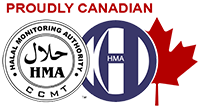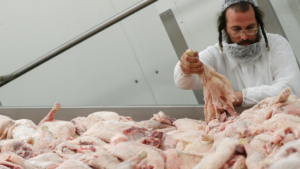The halal certification industry has been growing exponentially in recent years, as more and more people around the world are opting for halal products. Halal certification is a process that ensures that the products are prepared in accordance with Islamic dietary laws. These products are not just limited to food and beverages, but also encompass cosmetics, pharmaceuticals, and other consumer goods. The global halal market is expected to be worth USD 9.71 trillion by 2025, with Asia being the largest market for halal products. Halal certification is becoming increasingly important in the Toronto Halal food industry, and its future impact is likely to be significant. In recent years, the global halal food market has grown substantially, driven by increasing demand from Muslim consumers as well as non-Muslims who are seeking healthy and ethically-sourced food products.
In response to this trend, many Halal meat Toronto manufacturers and retailers are seeking halal certification for their products in order to access this growing market. The HMA’s certification process has the potential to have a significant impact on the food industry. With the global halal market expected to be worth USD 9.71 trillion by 2025, the demand for halal products is only going to increase. As a result, more and more food manufacturers and retailers are seeking halal certification to tap into this growing market. The HMA’s certification process is a trusted and recognized standard, which can help these companies to expand their reach and gain the trust of Muslim consumers
However, the future of halal certification is not without challenges. One of the biggest challenges is ensuring the authenticity of the halal certification process. There have been cases where products have been falsely labeled as halal, leading to consumer confusion and distrust. To address this issue, there needs to be a global standard for halal certification that is recognized by all countries. This would ensure that consumers can trust the halal certification process, and it would also make it easier for halal-certified products to be traded internationally.
The HMA’s certification process can also help to address some of the challenges that the halal certification industry faces. As mentioned earlier, one of the biggest challenges is ensuring the authenticity of the certification process. The HMA’s certification process is based on rigorous standards and is conducted by trained and experienced inspectors. This ensures that the products that are certified by the HMA are authentic and meet the necessary requirements for halal certification Another challenge that the halal certification industry needs to address is the lack of standardization in the certification process. Different countries have different regulations for halal certification, which can lead to confusion and inconsistency. A standardized certification process would help to ensure that all products are certified in the same way, regardless of where they are produced.
Another challenge that the halal certification industry faces is the lack of standardization. As different countries have different regulations for halal certification, it can be difficult for companies to navigate the different requirements. The HMA’s certification process is based on a standardized and recognized standard, which can help to reduce confusion and ensure that products are certified in a consistent manner. Another challenge is the cost and complexity of obtaining halal certification, which can be a barrier for small businesses and producers who may not have the resources or expertise to navigate the certification process. This can limit the diversity of halal products available in the market.
One potential solution to these challenges is blockchain technology. Blockchain is a secure and transparent way of recording transactions and verifying information. It can be used to create a tamper-proof and decentralized system for halal certification. This would ensure that all products are certified in a standardized and trustworthy manner, and it would also provide transparency to consumers. Another potential solution is the use of artificial intelligence (AI) to verify the halal certification process. AI can be used to analyze data and ensure that products meet the necessary requirements for halal certification. This would help to reduce the risk of false labeling and would also make the certification process more efficient.
Despite these challenges, the future of halal certification is bright, as the demand for halal food is likely to continue growing in the coming years. In order to meet this demand, it will be important for the industry to work towards greater standardization and transparency in the certification process, as well as to find ways to make certification more accessible and affordable for small businesses and producers. Overall, the future of halal certification is closely tied to the growth of the global halal food market, which is expected to continue expanding in the coming years. By addressing the challenges and working towards greater standardization and accessibility, the industry can ensure that halal certification plays a key role in meeting the needs and preferences of a growing and diverse consumer base.
In conclusion, the halal certification industry is set to grow in the coming years, but it needs to address some key challenges to continue expanding. A global standard for halal certification, a standardized certification process, and the use of technology such as blockchain and AI could all help to ensure the authenticity and efficiency of the certification process. By addressing these challenges, the halal certification industry can continue to grow and provide consumers with trustworthy and authentic halal products.




